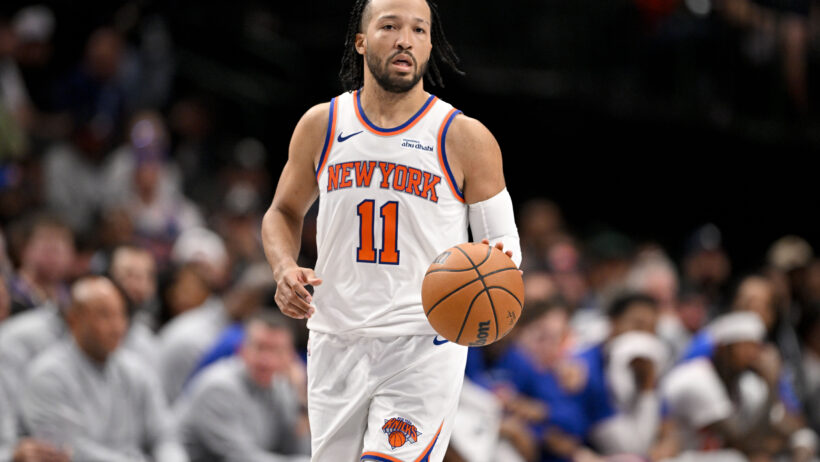DraftKings in ‘Monitor Mode’ Regarding Prediction Markets
By Robert Linnehan in Sports Betting News
Published:

- DraftKings reported record-setting revenues for the second quarter of 2025
- The company reported $1.5 billion in revenues for Q2, a 37% increase from Q2 in 2024
- CEO Jason Robins said the company is currently in “monitor mode” when it comes to the prediction markets
Amidst record-setting revenues for the second quarter of 2025, DraftKings leadership is keeping an eye on a new market opportunity that could prove fruitful in the future.
CEO Jason Robins celebrated the company’s successful second quarter during today’s earnings call, as DraftKings’ revenue of $1.5 billion, net income of $158 million, and adjusted EBITDA of $301 million set new records for the organization.
Robins revealed DraftKings will also continue to evaluate the possibility of entering the prediction contract markets, but remains firmly in “monitor mode” as it moves through the year.
First Mover Into Prediction Markets May Not Be Beneficial
DraftKings has shown interest in perhaps investing into the prediction markets, which could provide a way for the gaming company to enter states where sports betting is currently unavailable. Companies like Kalshi and Robinhood offer sports event contracts – which closely mirror sports betting – to users throughout the country. The market may provide an intriguing way for DraftKings to extend its reach into every state in the country.
But being a first mover into the space? Robins said it may not be worth it. The company needs to consider all of its stakeholders, including state regulators and tribal partnerships, before jumping into the prediction markets.
Several state gaming regulators have tried to ban company’s from offering sports event contracts within in their borders, which has led to lawsuits in New Jersey, Nevada, and Maryland. Tribal organizations, particularly those in California, have also been firmly opposed to sports event contracts and the prediction markets, viewing them as a threat to their gaming and sports betting exclusivity and interests.
“You can assume that at this stage we’re more in monitor mode than active discussions,” he said.
The company’s guidance for Fiscal Year 2025 does not include the potential launch of a prediction markets offering.
Missouri Launch Will Help, Hoping Illinois Per-Bet Fee is ‘Fixed’
The increase in revenue for the second quarter was driven largely by healthy customer engagement, efficient acquisition of new customers, higher structural sportsbook hold percentage, and “sportsbook-friendly outcomes,” Robins reported.
Robins and DraftKings CFO Alan Ellingson said the Missouri sports betting launch in Dec. 1, 2025, will provide a positive impact for the company at the end of the year.
DraftKings submitted an application for one of two untethered sports betting licenses in the Show-Me State, seemingly very confident it will be awarded one of the valuable licenses in what will likely be the only state to launch sports betting this year.
The timing of the launch is distinct, Robins said. The NFL, NBA, and NHL will all be in full swing when licensed sportsbook operators can begin offering bets in the state.
Hopefully, the revenues coming from Missouri will help to counteract the Illinois per-bet fee that was implemented in July. Robins said it’s a unique situation, as the company has never been subjected to a per-bet fee and its complete impact on DraftKings’ financials is unknown at this moment.
To counteract the fee, DraftKings announced it will implement its own $0.50 per-bet fee for users this fall.
Robins did say he hopes the per-bet fee is “fixed” in the state. Illinois will hold its veto session in October, but there is no evidence yet that legislators are even considering a repeal of the plan to tax every single bet taken in the Prairie State.
Other DraftKings Q2 Details
Robins touched on a new bill introduced in New Jersey that attempts to ban microbetting in one of the largest gaming markets in the country. Robins said the likelihood of the bill being approved is low.
“New Jersey offers online slots. I don’t know how they can look at microbetting as the great scourge,” he said.
Microbetting is “meaningful” in New Jersey, Robins said, but is just a single digit percentage of live handle for DraftKings.
Robins also touched on the following during the Q2 earnings call:
- Artificial intelligence will have a positive impact in the next six to 12 months. Adding AI agents to monitor and react to trading can provide real upside
- Sportsbook handle in Q2 reached $11.5 billion, a 6.3% increase over the Q2 2024 total
- Sportsbook revenue totaled $997.8 million in the Q2
- DraftKings is maintaining its fiscal year 2025 revenue guidance of $6.2 billion to $6.4 billion

Regulatory Writer and Editor
Robert Linnehan covers all regulatory developments in online gambling and sports betting. He specializes in U.S. sports betting news along with casino regulation news as one of the most trusted sources in the country.



